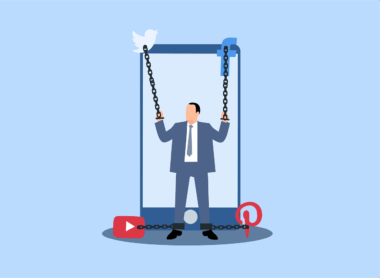The Role of Coaches and Sports Psychologists in Guiding Athletes’ Social Media Use
Social media has interwoven itself into the lives of athletes, playing a significant role in their public personas and personal well-being. Coaches and sports psychologists need to understand the potential impacts of social media on mental health. Athletes might experience both benefits and drawbacks when navigating these platforms. On one hand, social media allows athletes to connect with fans, creating a supportive community. On the other hand, it opens avenues for cyberbullying, unrealistic comparisons, and public scrutiny that can harm an athlete’s mental health. Coaches should engage in discussions about the importance of maintaining a positive online presence while highlighting strategies to handle negativity or harassment they might encounter online. Effective guidance includes encouraging athletes to set clear boundaries regarding their social media usage. Additionally, sports psychologists can help by providing tools to manage anxiety or stress induced by social media. Incorporating educational workshops could foster a healthy relationship between athletes and these platforms, ultimately supporting their overall mental well-being and allowing them to focus more on their performance. Understanding these dynamics can lead to improved outcomes for athletes. Awareness is the first step towards fostering a healthier engagement with social media.
Fostering Healthy Social Media Habits
Coaches and sports psychologists can play a vital role in fostering healthy social media habits among athletes. An initial step is facilitating training sessions tailored to understanding the intricate relationship between social media and mental health. During these sessions, athletes can learn about effective communication strategies and the importance of positive self-expression. By establishing clear guidelines for social media use, teams create a culture that prioritizes mental health and encourages responsible online behavior. For instance, developing protocols for reposting or commenting can help athletes navigate the often overwhelming social landscape. Coaches should emphasize the importance of focusing on constructive feedback rather than dwelling on negativity. Moreover, encouraging athletes to curate their online experiences promotes mental wellness. Athletes can unfollow or mute negative accounts, fostering a positive digital environment. Furthermore, discussing real-world experiences concerning social media impacts can lower stigma about mental health issues. Regular check-ins regarding athletes’ social media experiences can reveal potential concerns and help them develop coping strategies. Ultimately, when athletes feel supported in their online interactions, they are more likely to thrive and perform both physically and mentally on the field or court.
Social media can amplify the mental health challenges that athletes face, thus understanding the effects is crucial. Coaches and psychologists must help identify patterns of social media use that may be detrimental to the athlete’s performance and mental state. For instance, excessive scrolling through comments or direct messages can lead to anxiety and stress. Encouraging athletes to take regular breaks from social media serves as an effective protective measure against overwhelming online experiences. In these breaks, athletes can focus on their training and personal development without the noise of social media affecting their self-esteem. Building resilience through off-screen activities, such as meditation or hobbies, can also enhance the athlete’s mental clarity and reduce stress. Furthermore, recognizing the signs of social media fatigue is essential for coaches and sports psychologists. Engaging in regular discussions enables athletes to express their feelings openly and seek support when necessary. Providing tools and resources for time management online contributes to a balanced lifestyle, allowing athletes to enjoy the benefits of social media without succumbing to its challenges. In fostering this balance, athletes can progress towards achieving their performance goals while maintaining their mental health.
Monitoring the psychological impact of social media interventions can be beneficial for athletes. Coaches should have open lines of communication with their athletes to discuss experiences on these platforms and share insights into managing challenges. This includes encouraging athletes to reflect on what they post and how it aligns with their personal and professional beliefs. When athletes understand the purpose behind their online presence, it becomes easier to navigate the complexities of social media. Furthermore, creating team guidelines for ethical online behavior encourages collective accountability among team members. Coaches can organize contracts that outline acceptable and unacceptable online behaviors, which will cultivate a unified and supportive atmosphere within the team. This shared responsibility not only enhances the team’s cohesion but also helps individuals feel less isolated in their experiences. Utilizing group discussions or workshops can facilitate the sharing of challenges and best practices, reinforcing the idea that they are not alone in facing adversities. By adopting this courageous approach, athletes become more equipped to handle negative feedback or energy stemming from online interactions. Such resilience training, grounded in strong communication and support, strengthens the connection between performance and mental health.
Creating Positive Online Spaces
Creating positive online spaces for athletes is essential in the current digital age. Coaches and sports psychologists can work collaboratively to teach athletes about the significance of fostering these environments online. For example, encouraging athletes to highlight their achievements, share uplifting stories, and interact positively with their followers creates a sense of community. By maintaining an overall positive narrative, athletes can mitigate the effects of negativity they might encounter. This not only enhances their self-image but also serves to inspire others. Coaches can facilitate virtual workshops that cover topics related to online image, personal branding, and mental health. Additionally, athletes should be encouraged to engage in discussions surrounding mental health and resilience on their platforms. Sharing personal journeys and struggles can have a powerful impact on followers, reinforcing authenticity in the athlete’s brand. Social media can also be used as a tool for education by promoting mental health awareness campaigns, where athletes take active roles. This can empower athletes and provide them with the platform to advocate for mental health positively. Such practices not only strengthen the athletes’ self-worth but also enrich their connection with fans, promoting a supportive online community.
The responsibility of guidance in social media usage should not fall solely on athletes but also rests with their coaches and sports psychologists. It is crucial that they model effective digital interactions and demonstrate how to engage responsibly online. Coaches must lead by example by maintaining their own professional social media presence, thereby setting the standard for athletes. Regular engagement, such as sharing motivational content and positive messages, cultivates an encouraging online environment. Additionally, promoting educational resources about media literacy can enhance athletes’ understanding of the digital terrain. This includes recognizing harmful content, understanding privacy settings, and navigating the complexities of online interactions. Encouraging athletes to participate in community events related to mental health can further empower them to use their platform in meaningful ways. These events can spark conversations about mental health issues, helping to de-stigmatize discussions surrounding mental wellness. By positioning both coaches and sports psychologists as proactive mentors, athletes can develop healthy habits that extend beyond their athletic endeavors. The fundamental goal is to foster resilience and enhance the athlete’s overall experience, both on and off the field, through informed social media use.
Future research should explore the long-term effects of social media on athletes’ mental health. As technology evolves, so too do the challenges that athletes face regarding digital interactions. Teams should prioritize mental health education as an integral part of training. Allocating time for discussions about social media influence helps athletes remain vigilant and informed regarding potential pitfalls. Collaborating with mental health professionals can also strengthen the support provided to athletes. Facilitating access to therapy or counseling services, particularly tailored to social media impacts, can prove invaluable. Recognizing that mental health is an ongoing journey rather than a destination allows athletes to embrace their experiences as learning opportunities. Furthermore, developing supportive networks, both online and offline, is essential. This would contribute to a well-rounded approach to addressing the multifaceted challenges digital life presents. Coaches, psychologists, and athletes collectively navigating these issues fosters an environment built on understanding and resilience. Ultimately, the objective remains to empower athletes through education, support, and community, enabling them to advocate for their mental health effectively while enjoying their careers.
Conclusion: Strategies Moving Forward
Coaches and sports psychologists hold a pivotal role in shaping athletes’ experiences with social media, thus emphasizing the need for strong strategies. By providing proper tools and resources, they can significantly influence athletes’ relationships with these platforms. Educating athletes about the potential positive and negative impacts of social media helps them navigate their online interactions more effectively. Furthermore, implementing structured workshops and open discussions as regular parts of training fosters a culture of transparency and resilience. Athletes learn to hold themselves accountable while also understanding the collective responsibility of their team. Additionally, utilizing sports performance data to analyze how social media affects performance can ground discussions in reality, allowing athletes to see the tangible implications of their online behavior. This approach empowers them to take charge of their mental well-being by emphasizing constructive use of social media as a supportive tool. As these conversations evolve, so does the understanding between athletes and their mentors. Ultimately, equipping athletes with knowledge and practical strategies leads to improved mental health outcomes, thereby contributing to overall athletic success.





